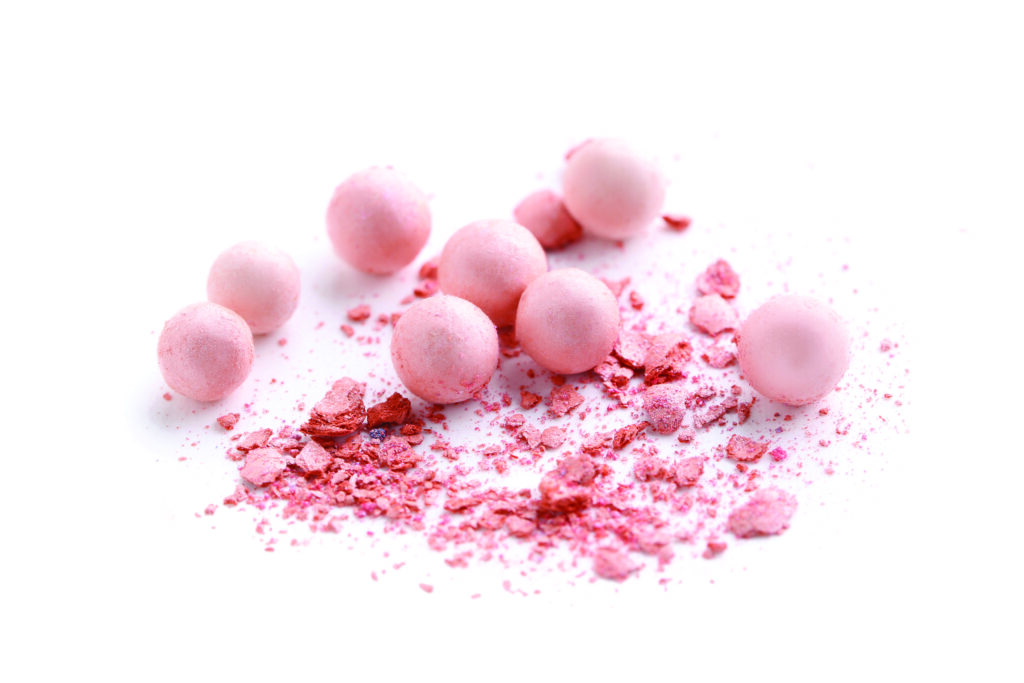Tokyo, April 6, 2021 — Ajinomoto Co., Inc. (“Ajinomoto Co.”) has utilized its unique amino acid technologies in successfully developing a highly biodegradable alternative to plastic microbeads1 for cosmetics. This material has the same feel and function as the microbeads derived from plastics, which are widely used in skin care and make-up products. Ajinomoto Co. plans to launch this new product in Q2-Q3 2022.

As awareness of sustainability and ESG initiatives have increased in recent years, countries have introduced stricter regulations to ban or reduce the use of plastics, which are a type of polymer that has a substantial adverse impact on the environment2. However, due in part to the technical difficulty of developing an alternative to plastic microbeads used in skin care and make-up products that retains their feel and user experience (i.e. their softness to the touch, moist feel and excellent adhesion to skin), regulations on their use have not yet been enacted in many major industrial nations.
In addition to its mainstay amino acid-based surfactants, Ajinomoto Co. also leverages its extensive expertise in amino acids to provide functional materials that are mild to skin, mainly for use in make-up products. One of these functional materials, Amihope® LL, is used in face powder and many other cosmetics as a high-lubricity plate-shaped powder characterized by a silky, moist feel and excellent adhesion to skin.
Using its expertise and technologies from Amihope® LL, Ajinomoto Co. succeeded in applying the functions of Amihope® LL to naturally derived spherical particles and thus developed an alternative to conventional plastic microbeads that has the same feel and function. Because this newly developed product uses only naturally derived raw material, it is highly biodegradable and is expected to reduce burden on the environment. It also significantly addresses the technical issues found in many existing plastic microbead alternatives.
In its FY2020-2025 Medium-Term Management Plan, Ajinomoto Co. has made the creation of a resource recycling society aiming for zero plastic waste and a 100% sustainable procurement ratio for important materials by 2030. In its roadmap to 2030, Ajinomoto Co. has positioned the reduction of the plastic it uses and the conversion to mono-materials and other recyclable materials as concrete measures to promote resource recycling.
The development and launch of this new material are an important part of these measures. Through its development of amino acid-based personal care ingredients that are environmentally friendly and mild to skin, Ajinomoto Co. will continue to contribute to a reduced burden on the global environment and comfortable lives for consumers.
1. Plastic microbeads are bead-shaped plastics with a diameter of 5 mm or less used in rinse-off personal care products such as face wash and toothpaste, as well as in skin care and make-up products. These and other plastics manufactured in micro-sizes are classified as primary microplastics, while plastics manufactured in large sizes that are crushed or broken down to micro-sizes in the natural environment are classified as secondary microplastics. (Source: Ministry of the Environment, Government of Japan, “Purasuchikku wo Torikmaku Kokunaigai no Jokyo” (Situation of Plastics in Japan and Overseas), 2018)
2. At the G7 Summit held in Charlevoix, Canada in June 2018, a charter was enacted that included a provision for “Working with industry towards reducing the use of plastic microbeads in rinse-off cosmetic and personal care consumer products, to the extent possible by 2020.” (Source: Ministry of the Environment, Government of Japan, “Purasuchikku wo Torikmaku Kokunaigai no Jokyo” (Situation of Plastics in Japan and Overseas), 2018)

Press release dated April 6, 2021: Ajinomoto Co., Inc. succeeds in developing a highly biodegradable alternative to plastic microbeads for cosmetics.
